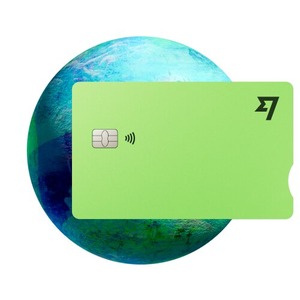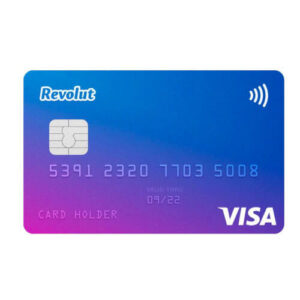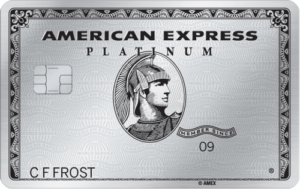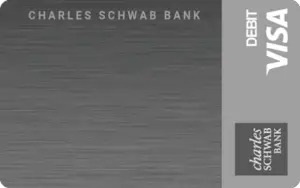5 Best Travel Cards without Foreign Transaction Fees 2026
Do you spend frequently in foreign currencies? Maybe you love to shop online with international retailers, or perhaps you’re a frequent traveler, or you’re living and working abroad. Foreign transaction fees can add 3% or more to your bill, every time you spend with your debit or credit card – so what’s the alternative?
Some debit cards, prepaid cards and international credit cards waive foreign transaction fees, which can make it easier and cheaper to spend overseas. This guide covers all you need to know, including cards from popular US banks, as well as a couple of alternative providers which can help you save – Wise and Revolut.
Key points: Best cards with no foreign transaction fees
- Wise Multi-Currency Card: Hold and exchange 40+ currencies, spend with your card in 170+ countries, with no foreign transaction fee and currency exchange with the mid-market rate and low fees from 0.43%
- Revolut debit card: Choose a basic account or upgrade for more features, with 25+ supported currencies, and linked payment card options – plus some no-fee ATM withdrawal and currency exchange, based on your account plan
- Chase Sapphire Preferred: Earn up to 5x rewards on travel and dining spending, which you can then redeem against travel spend – plus access some travel insurance and assistance products for free
- American Express Platinum: Earn 5x rewards on flights and hotel bookings, plus lounge access, travel benefits from partner organizations, and Amex membership benefits
- Charles Schwab Checking Account: Earn interest on your balance at 0.45%, and get ATM fee rebates around the world, with no account maintenance fees to pay
5 Best travel cards with no foreign transaction fees in the US
You’ll be able to find international debit, prepaid and credit cards in the US which have no foreign transaction fees. However, that doesn’t mean there are no fees to pay at all. Credit cards may have an annual fee, interest, cash advance costs and penalty fees for example, while debit cards can levy their own monthly charges, ATM withdrawal fees and exchange costs.
Banks like Chase, and card networks like Amex, both offer select cards with no foreign transaction fees – but you’ll have to weigh up the other costs to make sure they’re worthwhile.
Similarly, specialist services like Wise and Revolut have international debit cards with no foreign transaction fees, and their own set of features and fees.
To paint a picture, here’s a comparison chart with some of the options for no foreign transaction fee cards available in the US:
| Provider and name of the Card | Fees/interest | Exchange Rates | Withdrawal fee |
|---|---|---|---|
| Wise Multi-Currency Card | 9 USD to get a card, no ongoing fees Currency exchange from 0.43% | Mid market exchange rate | First 2 withdrawals up to a combined total of $100/month for no fee*. After that: $1.50 + 2% (once you’ve withdrawn $100 in a given month, any amount in excess will be charged a 2% fee) *ATM operators may charge their own fees. Fee amount varies by ATM operator. |
| Revolut debit card | Choose a standard plan without monthly fees, or upgrade to an account with monthly fees of up to 16.99 USD 0.5% fair usage fee once plan currency exchange limit is exhausted 1% out of hours fee for currency exchange when markets are closed | Mid market exchange rate to plan limit (1,000 USD/month for standard plan) | 1,200 USD/month no-fee (standard plan), then 2% |
| Chase Sapphire Preferred Visa credit card | 95 USD annual fee 40 USD late payment fee 20.74% – 27.74% variable representative APR | Visa exchange rate | 10 USD or 5% cash advance fee, plus any applicable interest fee |
| American Express Platinum Credit Card | 695 USD annual fee 40 USD late payment fee 20.99% – 28.99% variable representative APR | Amex exchange rate | 10 USD or 5% cash advance fee, plus any applicable interest fee |
| Charles Schwab Investor Checking Account Visa debit card | No fees | Visa exchange rate | No fees |
As you can see, you’ve got a pretty diverse choice when it comes to US cards with no foreign transaction fees, from credit cards with an annual charge to pay, to no fee checking accounts and specialist services which let you hold in multiple currencies, as well as spending globally. That means you can weigh up your options, to pick the perfect card for you. Here’s a quick summary of the cards we’ve highlighted so far – there’s more detail on each coming right up:
- Wise Multi-Currency Card: Spend in 150+ countries, with no foreign transaction fee and currency exchange with the mid-market rate and low fees from 0.43%
- Revolut debit card: Spend globally with your Revolut card and get some no-fee ATM withdrawal and currency exchange, based on your account plan
- Chase Sapphire Preferred: Earn up to 5x rewards on travel and dining spending, and access some travel insurance and assistance products for free
- American Express Platinum: Earn 5x rewards on flights and hotel bookings, plus lounge access and travel benefits from partner organizations
- Charles Schwab Checking Account: Earn interest on your balance at 0.45%, plus get ATM fee rebates around the world, with no account maintenance fees to pay
Wise Multi-Currency Card
💡 Key point: Hold 40+ currencies, spend with the Wise Multi-Currency Card in 170+ countries, send money to 70+ countries
The Wise account can be opened online, to hold and exchange 40+ currencies with the mid-market rate and low fees from 0.43%. There’s no foreign transaction fee to pay, and it’s free to spend any currency you hold in your account. Plus, get extras like local bank details to get paid easily from 30+ countries in 10 currencies.
Foreign transaction fee: No foreign transaction fee
Annual or monthly fee: No fee
Wise currency conversion: Mid market exchange rate with conversion fees from 0.43%
Benefits and rewards: Get local bank details to get paid to your Wise account from 30+ countries, in 9 foreign currencies
| Advantages of Wise Multi-Currency Card | Disadvantages of Wise Multi-Currency Card |
|---|---|
|
|
Revolut debit card
💡 Key point: Choose your account plan, to hold 25+ currencies, spend globally, and access some no-fee currency exchange based on your account plan
Revolut has standard accounts with no monthly fees, and a couple of higher tier account options with fees up to 16.99 USD/month, which have additional features. All accounts have linked debit cards, can hold 25+ currencies, and have some no-fee currency exchange and ATM withdrawals, although the exact number of no-fee transactions available depends on the account tier you select.
Foreign transaction fee: No foreign transaction fee
Annual or monthly fee: No fee for standard account, up to 16.99 USD/month for higher tier accounts
Currency conversion: Mid market exchange rate to plan limits
Benefits and rewards: Get extras like budgeting and saving features, plus accounts for under 18s
| Advantages of Revolut debit card | Disadvantages of Revolut debit card |
|---|---|
|
|
Chase Sapphire Preferred credit card
💡 Key point: Travel optimized card with high rewards on travel spend, and extra benefits and offers including travel insurance and assistance
Chase Sapphire Preferred is a Visa credit card with no foreign transaction fee and a relatively low annual charge of 95 USD. In return you can earn points on travel and everyday spend, to redeem later against travel rewards. You’ll also be able to access various travel benefits like some baggage insurance, trip cancellation cover and more.
Foreign transaction fee: No foreign transaction fee
Annual or monthly fee: 95 USD annual fee
Currency conversion: Visa exchange rate
Benefits and rewards: Earn up to 5x rewards on travel spend, plus extra travel perks and offers
| Advantages of Chase Sapphire Preferred credit card | Disadvantages of Chase Sapphire Preferred credit card |
|---|---|
|
|
American Express Platinum credit card
💡 Key point: Travel credit card with a relatively high annual fee, offset by extra perks and opportunities to earn rewards on travel faster than some alternative card options
If you don’t mind the annual fee, the American Express Platinum credit card can offer some great rewards on day to day spending, plus a huge range of partner offers and discounts which are tailored to travel. Rewards also cover entertainment and dining, making this a good card for people who love to spend on life’s little luxuries.
Foreign transaction fee: No foreign transaction fee
Annual or monthly fee: 695 USD annual fee
Currency conversion: American Express exchange rate
Benefits and rewards: Earn up to 5x rewards on travel spend, plus extra travel perks and offers
| Advantages of American Express Platinum credit card | Disadvantages of American Express Platinum credit card |
|---|---|
|
|
Charles Schwab Investor Checking Account Visa debit card
💡 Key point: No fee checking account, offered alongside Schwab brokerage options, to allow customers to spend internationally for lower fees
The Charles Schwab Investor Checking Account and Visa debit card is offered alongside the One brokerage account, so that as well as investing with Schwab, you can also cut the costs of managing your money day to day. Interest is paid on the balance you hold, and there are no foreign transaction fees and unlimited ATM fee rebates, to keep costs low overall.
Foreign transaction fee: No foreign transaction fee
Annual or monthly fee: No fee
Currency conversion: Visa exchange rate
Benefits and rewards: Offered with a brokerage account, to make it easier to transfer in and out of both account products
| Advantages of Charles Schwab Investor Checking Account Visa debit card | Disadvantages of Charles Schwab Investor Checking Account Visa debit card |
|---|---|
|
|
How to get a card with no foreign transaction fees in the US
The exact steps you need to take to get a card with no foreign transaction fee in the US may vary depending on the provider you select. However, in most cases, if you’ve got a full set of ID and proof of address documents, and you’re a US resident, you’ll be able to get your account all set up, and your card ordered, online or through the bank or provider’s app.
As an example, let’s look at how to get a Wise Multi-Currency Card in the US:
- Download the Wise app or head to the Wise desktop site
- Click ‘Open an account’ and enter your email address – you can also register using a Facebook, Google or Apple ID
- Follow the prompts to enter your personal and contact information
- Upload an image of your ID and proof of address documents for verification
- Once your account is verified you can add your first balance in the currency of your choice
- Select the card tab and follow the prompts to order your Wise Multi-Currency Card
Ready to get started?
What is a foreign transaction fee?
A foreign transaction fee is a percentage fee charged by your bank or card issuer every time you spend or make a withdrawal with your credit, debit or prepaid card, in a foreign currency. That means that foreign transaction fees can apply when you travel and spend or make ATM withdrawals overseas, or when you’re shopping online with retailers based overseas, and spending in foreign currencies.
Some banks, specialist providers and card issuers waive foreign transaction fees – we’ve got a few to consider coming up later in this article.
How do foreign transaction fees work?
If your bank or card issuer charges a foreign transaction fee, you’ll find that an extra percentage fee is added onto your bill whenever you use your credit, debit or prepaid card to spend in a foreign currency.
When you pay in a foreign currency, you’ll usually find your spending is converted back to dollars using the bank or card issuer’s exchange rate. The foreign transaction fee is then calculated as a percentage of the dollar amount, and also deducted from your balance (for a debit card) or added to your bill (when you spend with a credit card).
How much are foreign transaction fees?
As we mentioned earlier, the good news is that not all banks and card issuers charge foreign transaction fees. However, the bad news is that if your bank does use foreign transaction fees, they can be pretty steep – often around 3% of the dollar amount you spend.
That quickly mounts up. Say you’re on vacation, and spend 1,000 USD in total on shopping and eating out. The foreign transaction fee alone adds 30 dollars to the total bill – and this rises to 150 dollars in foreign transaction fees if you’re on a longer break and end up spending 5,000 USD, for example.
We all want our money to go further when we’re on vacation or when we shop online. This guide covers providers and banks which have card products without foreign transaction fees, to help you save. We’ve looked at a few major US banks and card networks, plus a couple of providers with multi-currency holding accounts and no foreign transaction fees – Wise and Revolut.
How to use cards internationally
Generally, using your credit, debit or prepaid card overseas is just as easy as doing so at home in the US. However, some banks may require you to inform them of your travel plans – to avoid your payments flagging as suspicious on their system – and you’ll also need to take a few other simple steps to make sure you can spend easily, and without any extra fees.
Here are a few things to consider:
- If you’re making a withdrawal or spending abroad, check that the ATM is compatible with your international card – look for the Amex, Visa or MasterCard logo
- Double check the fees charged by your bank for spending and making withdrawals overseas, so there are no surprises
- Always pay in the local currency wherever you are to avoid dynamic currency conversion (more on that next)
- Update your contact details with your bank, in case they need to get in touch while you’re abroad
- Pay your bills on time, so you don’t run into late payment fees from your card issuer
What is dynamic currency conversion?
Dynamic currency conversion (DCC) is where you’re asked, by a merchant or when making an ATM withdrawal, if you’d rather pay in dollars instead of the local currency where you are. It’s promoted as a time saver – as you’ll instantly see how much your payment is costing in dollars, with no need to do the math. However, in reality it usually means you pay more overall, as the merchant or ATM operator can set the rate used to convert your payment to dollars, and add in fees too. This pushes up the price, and is worth avoiding.
The card operators and specialist providers we’ve touched on in this guide all handle currency conversion in different ways – but they’ll usually offer a much fairer deal than relying on DCC. Here’s how a few convert your money when you spend:
- Wise: Currency conversion uses the mid-market rate with low fees from 0.43%, no foreign transaction fee
- Revolut: Currency conversion uses the mid-market rate to your plan limit with fair usage fees of 0.5% after that, no foreign transaction fee
- Chase: Currency conversion uses the Visa rate on the day of purchase, or on the day the purchase is processed, no foreign transaction fee
Which US banks do not charge foreign transaction fees?
Banks often charge foreign transaction fees when customers spend on their cards, but some US banks do offer a selection of card options with no foreign transaction fees. That can be a good pick if you travel a lot or if you like to shop online with international retailers.
Here are some examples of popular US banks that offer cards without overseas transaction fees:
- Chase: Sapphire Preferred credit card; Sapphire Reserve credit card. Chase has varied Sapphire brand cards, depending on your preferences, and a good selection of co-branded no foreign transaction fee cards issued with hotel chains, airlines and even Amazon
- Bank of America: Travel Rewards credit card; Premium Rewards credit card; Premium Rewards Elite, Travel Rewards for Students. Bank of America has a pretty impressive array of travel credit cards including these and a whole host of cards issued in partnership with airlines, cruise lines and more.
- Capital One: Quicksilver credit card; Venture Rewards credit card. Capital One has several different variants on both of these card brands, with no foreign transaction fees, and aimed at customers with different needs, preferences and credit ratings
- Wells Fargo: Autograph Visa credit card. Check out the offers from Wells Fargo for no foreign transaction fee card options, including the Autograph Visa
This list is not intended to be exhaustive – you may find other US banks or other cards that don’t have foreign transaction fees – so do remember to do your own research to pick out the perfect card for your specific needs.
Conclusion: Best card for overseas spending
If you spend in foreign currencies often – either when you travel or when you shop online, getting a no foreign transaction fee card can make sense. You’ll cut down the overall costs of transacting in foreign currencies, and depending on the card type and account you prefer, you may also get extras like reward points or multi-currency holding facilities.
We’ve looked at several different no-foreign-transaction-fee card types, including credit cards which have an annual fee but also offer great reward earning opportunities; and some specialist cards from providers like Wise and Revolut.
- Wise has a flexible multi-currency account which can hold and exchange 40+ currencies, so you can spend with no foreign transaction fees and currency conversion at the mid-market rate.
- Revolut also supports 25+ currencies for holding, and has handy perks like budgeting and saving options, so you can do more with your money at home or abroad.
Use this guide to compare the features of each card and choose the one that best fits your personal needs and spending habits.
Best card with no overseas transaction fees US FAQs
How do I avoid foreign transaction fees?
To cut the costs of spending overseas it makes sense to try to find a card which avoids foreign transaction fees. Take a look at no-foreign-transaction-fee credit cards from your own bank – including the Chase Sapphire Preferred credit card, and compare them against low cost debit card options from services like Wise and Revolut.
Which banks charge no foreign transaction fees?
Many major US banks – including Chase, Capital One, Bank of America and Wells Fargo – have one or more credit cards with no foreign transaction fee. However, you’ll need to read the terms and conditions carefully on your account to make sure you’ve picked a card that suits your needs. As an alternative, you might consider a debit card with no foreign transaction fee from a non-bank provider like Wise or Revolut.
Is it better to pay in local or foreign currency with my card when traveling?
It’s always best to pay in the local currency wherever you are, to avoid the extra fees that come with dynamic currency conversion.
What is the most cost effective way to exchange currency?
Often spending on your no foreign transaction fee card is pretty economical – and usually cheaper than using an airport or hotel currency exchange. Another smart choice is to open a multi-currency account with a provider like Wise or Revolut so you can exchange and hold all the currencies you need in one account, ready to spend or withdraw when you travel.
Is it better to buy currency for the country you are visiting?
Carrying a lot of cash comes with risks, so making ATM withdrawals when you arrive in your destination is often the better idea. Make sure you have a card with low or no ATM fees and no foreign transaction fee, and avoid credit cards if you can, as these usually mean high cash advance costs. Both Wise and Revolut have low cost account options which have some no-fee ATM withdrawals internationally, every month.
How do you avoid exchange rate fees?
It’s not usually possible to avoid exchange fees entirely, but you can certainly look for a bank or provider which has transparent and low charges, to cut costs overall. Compare your own bank against a specialist service like Wise or Revolut, to see which works out cheaper for the type of transactions you make often.
Sources:
- Chase credit cards with no foreign transaction fees
- American Express Platinum credit cards
- Charles Schwab checking account




